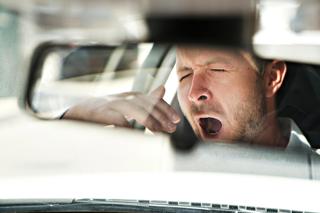Autoglass is beginning to roll-out its new solution to calibrate Advanced Driver Assistance Systems.
Autoglass estimates that by the year 2020, more than 15.3 million vehicles – 40% of the entire UK car parc will carry systems that require calibration following a windscreen replacement. If the sensors and cameras that the systems use are misaligned by as little as one degree, the consequences can be devastating, particularly at higher speeds, as they will fail to detect and analyse driving conditions correctly in order to warn drivers about potential hazards or take corrective actions such as autonomous emergency braking.
Research from Autoglass has uncovered a lack of comprehension among drivers about the importance of calibration.
Over two-thirds of drivers (68%) decided to go against their vehicle manufacturer’s advice to calibrate following a windscreen replacement – many because they perceived everything was working correctly, something which cannot be determined without the necessary technical equipment. Perhaps more worryingly, almost a third (31%) of those who contacted their car dealership for calibration found that their first point of contact was not aware of the need for calibration and 53% were given inaccurate advice in relation to their problem.
In 2015 just over 2% of windscreen replacements performed by Autoglass required a calibration but this figure is set to grow dramatically over the next five years, and is already much higher on the continent. 95% of all new car models tested by European car safety assessor EuroNCAP in 2015 were already fitted with autonomous emergency braking, and organisations such as Thatcham and Euro NCap have called for it to be made mandatory in every vehicle.
The national roll-out of the calibration solution from Autoglass follows a successful regional pilot, extensive investment in research, development, and technician training, resulting in Autoglass® being able to calibrate what it believes is an unrivalled 96% of all vehicles on the road.
Dr Chris Davies, head of technical superiority at Autoglass said: “Motorists are very familiar with the benefits of driving with well-established safety features like seat belts and airbags, helping to reduce the risk of injuries when accidents happen. But now the motoring industry has an important task to make drivers understand the importance of new and more technically complex features aimed at preventing collisions altogether, such as lane departure warnings and autonomous breaking. If the technologies that support these are working as they should, they will significantly reduce the likelihood of accidents.
“Driver assistance systems are the first of many innovations that will change the mandate of the automotive after care market and we’ve invested significantly in equipment and training to ensure we’re at the fore-front of new developments. This makes it all the more satisfying to see this vital solution available to customers across the UK.”
Neil Atherton, sales and marketing director of Autoglass added: "The automotive after-market needs to evolve to keep pace with the speed of innovation that is happening to help bring down the number of injuries and deaths on UK roads. Even a minor margin of error can have serious consequences on the success or failure of the latest safety features. We are proud to play our part by working closely with our industry partners, rolling out our new calibration solution nationwide, and by being instrumental in efforts to create an industry code of practice, due for publication later this year.”



















Login to comment
Comments
No comments have been made yet.